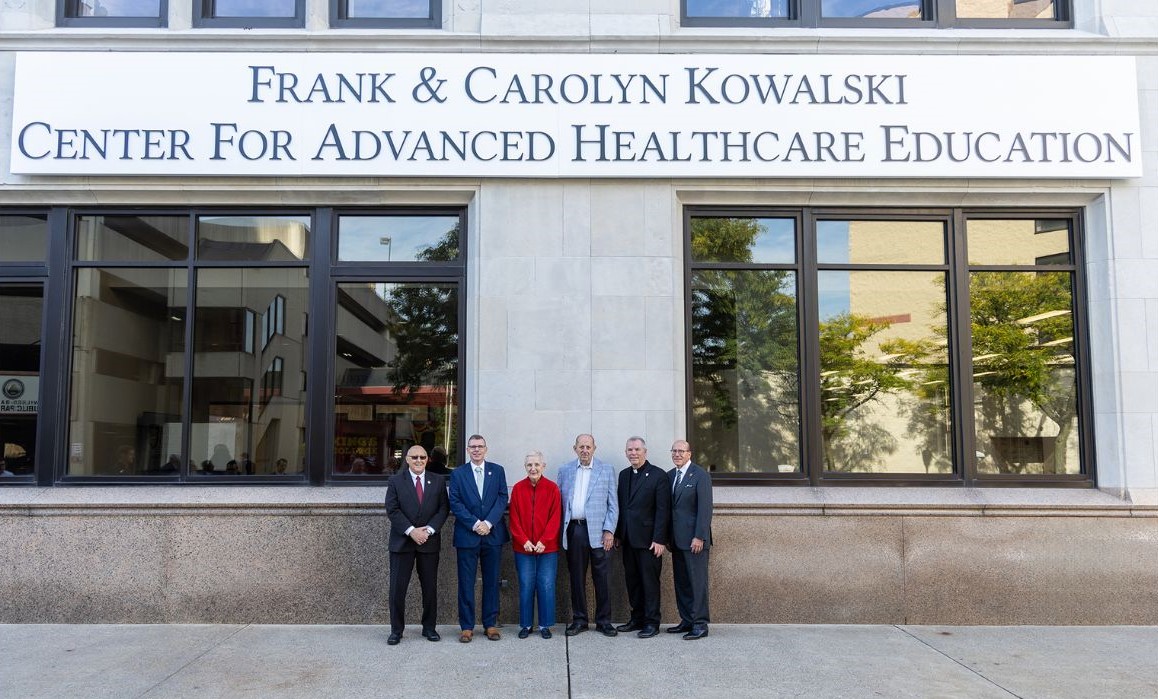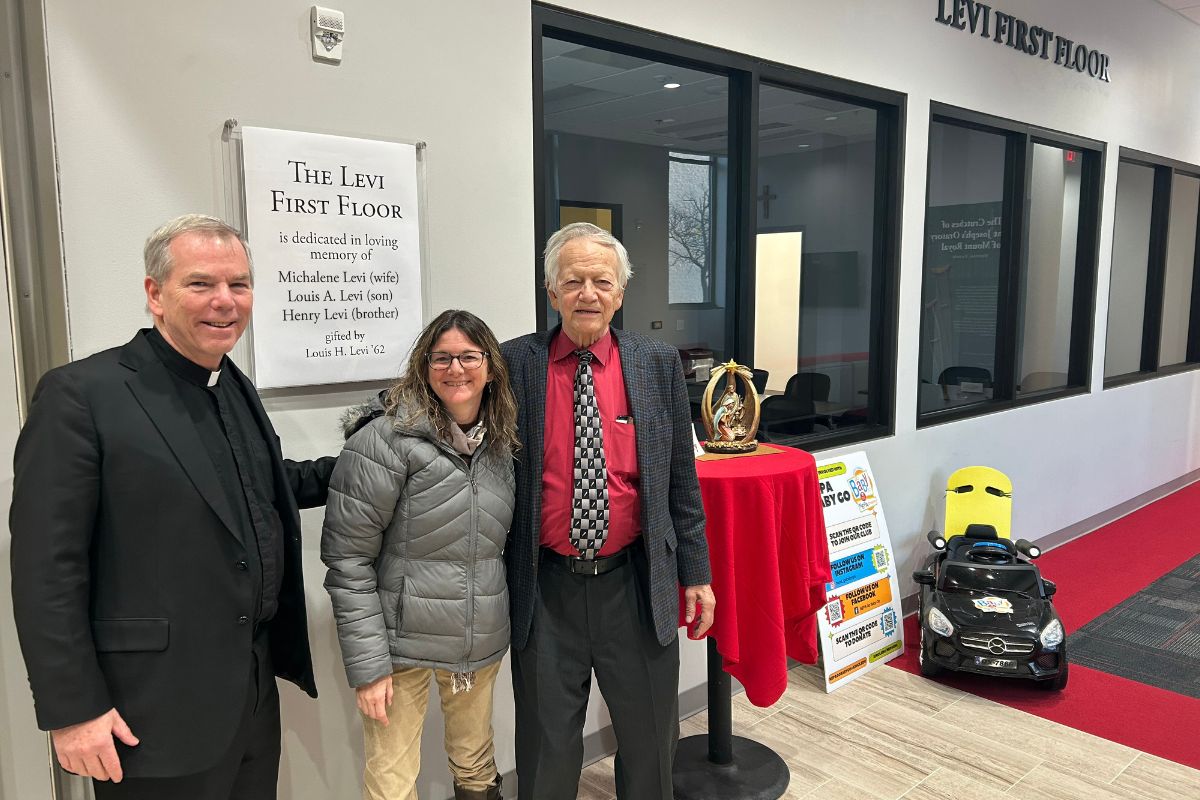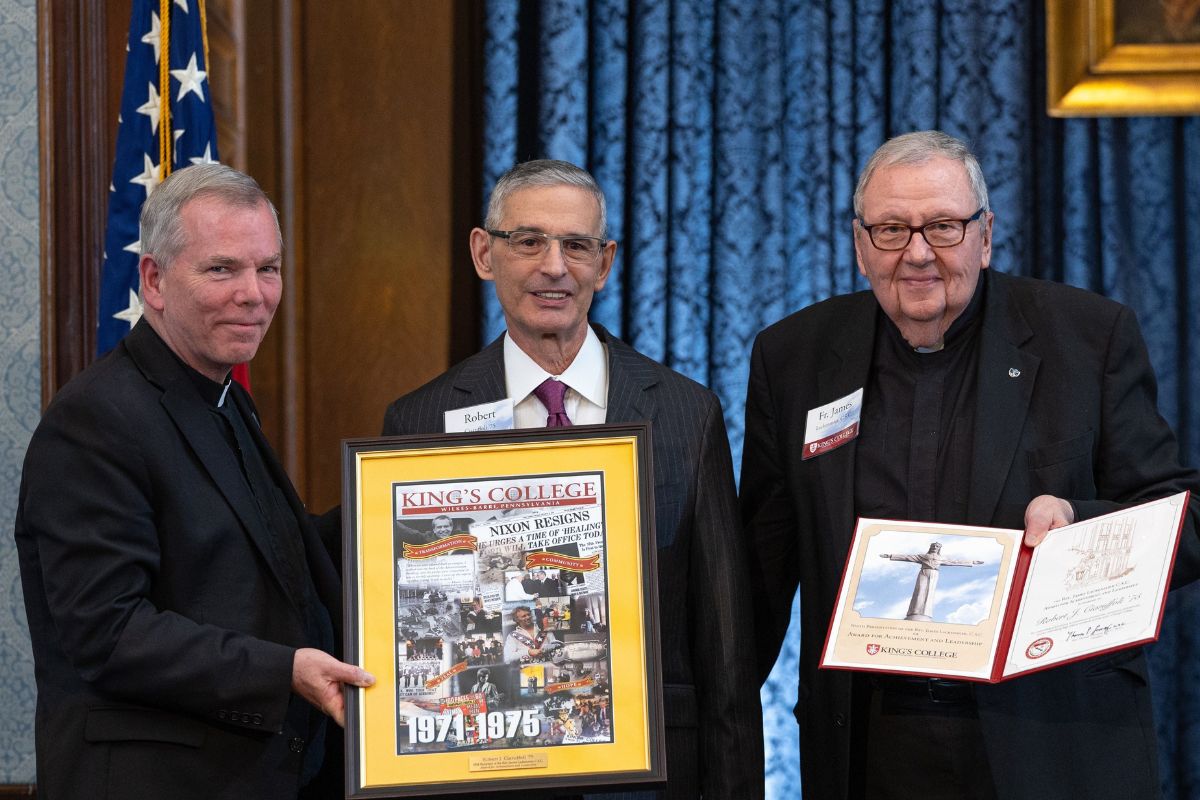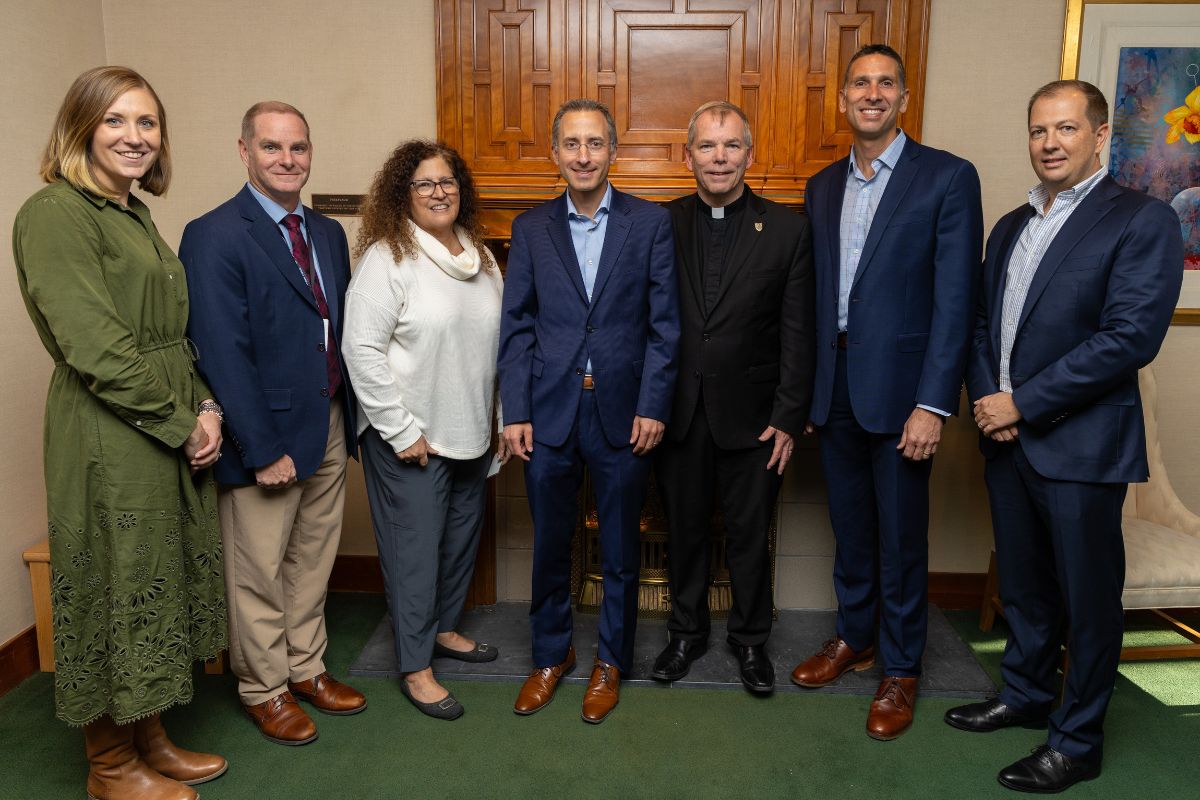King’s Opens $8 Million State-of the-Art Medical Education Facility in Downtown WB
King’s College today held a formal blessing and dedication ceremony for its now operational Frank and Carolyn Kowalski Center for Advanced Healthcare Education, a more than $8 million redevelopment project of the former Times Leader building that includes 60,000 square feet of renovated space and five floors of state-of-the-art labs and education resources.
The facility’s new name honors benefactors Frank Kowalski Jr. and his wife Carolyn, lifetime residents of Wyoming Valley who committed a major gift to the College’s recent Send Us Forth campaign. The Kowalskis have been following this project since King’s College first purchased the Times Leader building, and its transformation into a health care education facility was particularly important to them given Carolyn’s career as a registered nurse.
“We’ve lived and worked in the Wilkes-Barre area all our lives,” said Frank Kowalski “This community has been very good to us. We wanted to do something for the future, and the best way to do that is to invest in young people and education.”
The facility is home to the College’s new Doctorate in Occupational Therapy program—the first doctorate program in the institution’s history—and its new accelerated Bachelor of Science in Nursing program. The site now houses several pediatric, physical rehabilitation, daily living, and cadaver labs, many of which feature augmented reality technology, 3D imaging and printing services, and other advanced educational equipment.
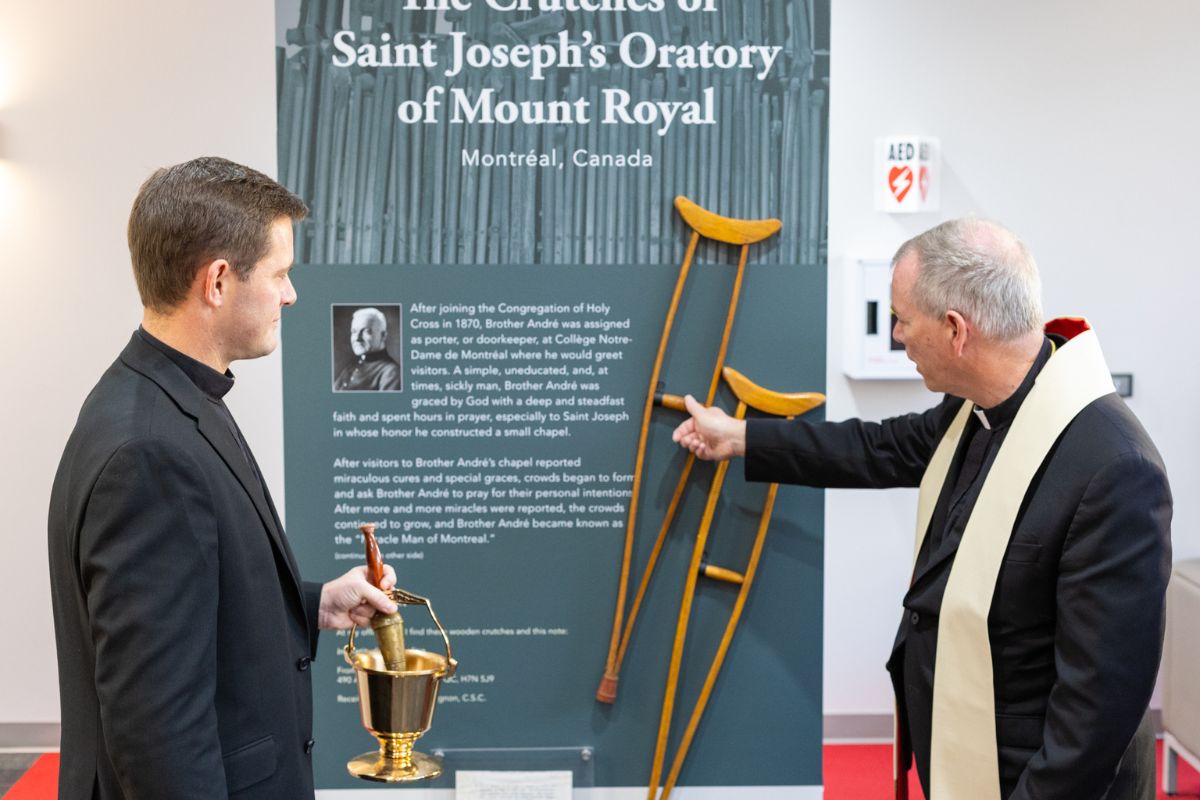
The facility’s technology will also improve learning experiences in more than a half-dozen other health science programs, as well as create educational opportunities for engineering and computer science students who can operate the facility’s 3D printing services and AI-backed Hololens augmented reality devices.
These devices allow students to produce custom casts and wheelchairs, practice verbal patient interactions in an AI-backed virtual environment, and project interactable 3D images in classrooms spaces or over anatomical models.
“The new lab spaces are designed to prepare elite occupational therapists, nurses, and other health care professionals who can meet the growing physical and mental healthcare needs of Luzerne County and beyond, including improving childhood development rates and alleviating occupational challenges for adults, elderly, and people with disabilities, especially those in underserved and disadvantaged populations,” said Christopher O’Brien, Ph.D., dean of health sciences and associate clinical professor of athletic training.
The more than $8 million project includes $3.5 million in Pennsylvania Redevelopment Assistance Capital Program funds, $500,000 in Luzerne County American Rescue Plan Act funds, and $450,000 in Congressionally Directed Community Project funds. The project received a separate $400,000 grant under Pennsylvania’s Industrial Sites Reuse Program (ISRP) to remediate asbestos and other hazards. The project also received $100,000 from the Hearst Foundations, $100,000 from the AllOne Foundation, and $5,000 from the First Catholic Slovak Ladies Association.
“The amazing process of transforming this historic landmark into an advanced education facility was possible because of numerous supporters who are inspired by nurturing our community and a better future for young people,” said Rev. Thomas P. Looney, C.S.C., Ph.D., president of King’s College. “This building will create unforgettable learning experiences for a new generation of health care workers and help revitalize Wilkes-Barre by bringing more students, faculty, and staff downtown.”
Father Looney today recognized the many government and community leaders for their invaluable support, including Mayor of Wilkes-Barre George C. Brown, the Wilkes-Barre City Council, the Luzerne County Council, State Representative Eddie Day Pashinski, State Senator Marty Flynn, former State Senator John Yudichak, Governor Josh Shapiro, former Governor Tom Wolfe, and U.S. Senator Robert P. Casey.
An IMPLAN economic impact study prepared by The Institute for Public Policy and Economic Development estimated the rehabilitation would generate over $11 million and 63 jobs during construction and nearly 40 permanent jobs both at the College and downtown after construction. Overall, the project is estimated to produce an annual economic impact exceeding $9.5 million and will infuse the city and surrounding community with talent, energy, and capital.
